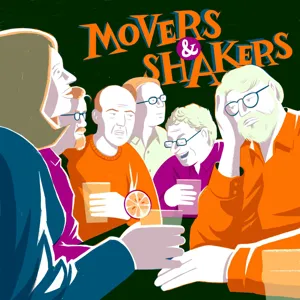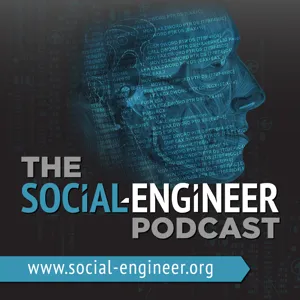Podcast Summary
Impact of Parkinson's on Voice: People with Parkinson's often struggle to be heard due to changes in rate, voice quality, and intonation, making it necessary for them to repeat themselves frequently.
Parkinson's disease can significantly impact a person's voice, making it softer, breathier, and sometimes difficult for others to understand. This issue is due to the same symptoms of rigidity and slowness of movement that affect other parts of the body also impacting the speech production apparatus. Speech therapist Tim Grover explains that these symptoms are not visible but are heard as changes in rate, voice quality, and intonation. Most commonly, people with Parkinson's report being asked to repeat themselves and feeling that they're not loud enough. Mark Mardell, the podcast host, shares his personal experience of dealing with this issue, which has become more pronounced since undergoing Deep Brain Stimulation (DBS) for the condition. While it's not clear how often this happens, Tim, who is also Mark's speech therapist, suggests that it's a common occurrence.
Speech Changes in Parkinson's Disease: People with Parkinson's may speak softly and breathily due to muscle changes affecting respiration, phonation, and articulation. Deep brain stimulation can worsen speech issues. Consult healthcare providers for speech concerns.
People with Parkinson's disease often speak softly and breathily due to changes in their perception of normal loudness and weaker muscles involved in respiration, phonation, and articulation. These changes result from reduced movement and poor initiation of movement in the muscles related to speech. Deep brain stimulation, a common treatment for movement symptoms in Parkinson's, can also negatively impact speech. It's essential for individuals with Parkinson's considering DBS to discuss potential speech side effects with their healthcare providers.
Deep Brain Stimulation's Impact on Voice and Psychological Well-being: Deep Brain Stimulation can improve motor symptoms of Parkinson's, but may impact voice and psychological well-being, requiring careful consideration and consultation with healthcare professionals and loved ones.
Deep Brain Stimulation (DBS), specifically targeting the Subthalamic Nucleus (STN), can significantly reduce the motor symptoms of Parkinson's disease for some individuals. However, the psychological impact, including feelings of invisibility and loss of voice dominance, can be profound and long-lasting. The decision to undergo DBS is a complex one, as it involves balancing the benefits of pain relief and improved motor function against the potential loss of speech clarity and volume. It's important to note that each person's experience with DBS can vary, and some may not experience a noticeable change in voice volume or articulation. Additionally, the psychological impact of the procedure can be different for each individual, and some may find ways to adapt or cope with the changes. Ultimately, the decision to undergo DBS should be made in consultation with healthcare professionals and loved ones, taking into account the individual's specific symptoms, quality of life, and personal preferences.
Making Your Voice Heard with Parkinson's: Intensive therapy like Lee Silverman Voice Training (LSVT) can help people with Parkinson's improve their volume and articulation, boosting confidence and effective communication. Regular practice is essential to maintain progress.
People with Parkinson's disease may need to actively work on making their voices heard due to the progressive nature of the condition. The symptoms, such as weaker and thinner voice, mumbling, and flat intonation, can make communication challenging and lead to feelings of diminishment and reluctance to participate in conversations. A solution suggested by Vin Ray, a former BBC foreign editor diagnosed with Parkinson's, is Lee Silverman Voice Training (LSVT). This intensive therapy involves four sessions a week for four weeks, with the therapist coming to the patient's home for each session. The exercises, which may seem comical, aim to increase volume and focus on articulation. Ray shared that he managed to say "ah" for 45 seconds at one point but usually around 20 to 25 seconds. The process is not easy, but the benefits, such as improved confidence and effective communication, are well worth the effort. It's crucial for those with Parkinson's to keep speaking, order food, make phone calls, and not hand over communicative tasks to others, as this can hinder their progress. Ultimately, making your voice heard is essential for maintaining a sense of self and staying engaged in social situations.
Practicing vocal exercises to improve communication for individuals with Parkinson's disease: LSVT exercises, involving long and loud vocalizations, repetition, and glides, help improve voice volume, clarity, and articulation for individuals with Parkinson's disease, boosting confidence and communication with loved ones.
Effective communication is essential, especially for individuals with Parkinson's disease. Vin Ray, a broadcaster living with Parkinson's, shares his experience of practicing vocal exercises to strengthen his voice and improve communication with his wife and mother. These exercises, known as Lee Silverman Voice Treatment (LSVT), involve long and loud vocalizations, repetition, and glides between different pitches. The aim is to improve voice volume, clarity, and articulation. Vin describes how he practices these exercises with his nearly blind and deaf mother during their weekly crossword sessions. He also mentions the importance of being aware of when his voice is slipping and the positive impact these exercises have had on his confidence and communication with his wife. The LSVT treatment, developed by speech therapists in the US, has been used for decades and is considered the standard approach for managing speech issues in Parkinson's disease. However, Vin encountered a setback when he was unable to receive the treatment due to a loss of staffing at his local NHS (National Health Service) center. Despite this, he remains optimistic and encourages continued practice and awareness of the importance of effective communication for individuals with Parkinson's disease.
Speech therapy: Under-recognized and under-resourced: Speech therapy assistants offer less intensive group sessions, but resource constraints limit their availability. Changes in speech can be subtle and impact daily life, leading to isolation. Current spread during therapy can be counterproductive, requiring alternative exercises like 'jump and glide' to maintain pitch.
Speech therapy, though crucial for managing speech and swallowing disorders, often faces insufficient recognition and resources due to its time-intensive nature. A speech therapy assistant offers a less intensive group therapy session based on LSVT principles, but the NHS had to cut back due to resource constraints. Changes to speech can be subtle and go unnoticed until they significantly impact daily life, leading to isolation. During therapy, patients might experience improvement in other areas but unintended stimulation to speech areas, a phenomenon called current spread, could be counterproductive. The assistant suggested alternative exercises to avoid this issue. For instance, the "jump and glide" technique involves maintaining a pitch for a few seconds. Communication challenges can affect anyone, even those accustomed to assertive roles, and therapy can begin during lockdown as an early response to symptoms.
Techniques for improving speech clarity: Speech disorders can hinder clear communication, but simple tools like a popper toy or a metronome watch can help individuals slow down and improve their speech clarity, despite the stigma or noise associated with them.
Speaking clearly and at an understandable pace can be a challenge for some individuals, particularly those with speech disorders. The lady in the discussion, for instance, had a speech disorder that led to a fast rate of speech, which decreased her intelligibility. She had tried various techniques to improve her clarity, including using a child's popper toy as a cue to pause between words and using a metronome watch to regulate her speech. These techniques helped her slow down her speech and improve her clarity in social situations. However, she still faced challenges with the stigma of using these tools and the noise from the metronome watch. The key takeaway is that individuals with speech disorders, despite their professional backgrounds or strong voices, can face significant challenges in communicating effectively, and simple tools and techniques can make a big difference in their daily lives.
Communication for stammering requires individualized approach: Techniques like delayed auditory feedback, auditory masking, and using different voices can help individuals with stammering. Technology, like apps, makes these techniques more accessible, but progress and consistency can be challenging.
Effective communication for individuals with stammering requires an individualized approach, considering the unique severity and speech patterns of each person. Techniques such as delayed auditory feedback, auditory masking, and even using different voices can be helpful, but their application varies from person to person and situation to situation. For instance, using a watch or a cube for speech therapy might not be suitable for everyone, and some techniques, like speaking loudly all the time, can be challenging. The use of technology, like apps, has made these techniques more accessible, making significant progress in the field over the last decade. However, it's important to acknowledge that dealing with stammering can be a complex and ongoing process, and it may not always be easy or consistent. The conversation also highlighted the importance of recognizing the challenges faced by individuals with stammering and the hope that continued research and technological advancements will bring.
The Importance of Communication and Connection in Neurological Conditions: Advancements in DBS technology enable adjustments to mitigate speech side effects, but clear communication and touch remain crucial for maintaining connections in neurological conditions.
While Deep Brain Stimulation (DBS) can offer significant advantages for those suffering from certain neurological conditions, there are potential risks, particularly related to speech side effects. However, advancements in technology now allow for adjustments to stimulation to mitigate these changes. A story shared by a neurologist about a couple illustrates the importance of clear communication and the role of touch in maintaining connections when speech is difficult. The experience of not being able to speak and not being able to hear is poignantly captured in a small poem. Despite these challenges, the ability to touch and connect with loved ones remains a powerful reminder of the human experience. The podcast "Movers and Shakers" explores various topics related to health and wellbeing, featuring guests such as Rory Katharine Jones, Gillian Lacey Solimar, Mark Mardell, Paul Mayhew Archer, Nicholas Mostyn, and Jeremy Paxman. The show is produced by Nick Hilton for PODO, with music by Alex Stobbs and cover artwork by Tillukat. Listeners are encouraged to subscribe, rate, and review the show, and can follow it on Twitter @moversand6. The podcast offers a platform for thoughtful discussions and insights into the complexities of human health and the importance of communication and connection.





